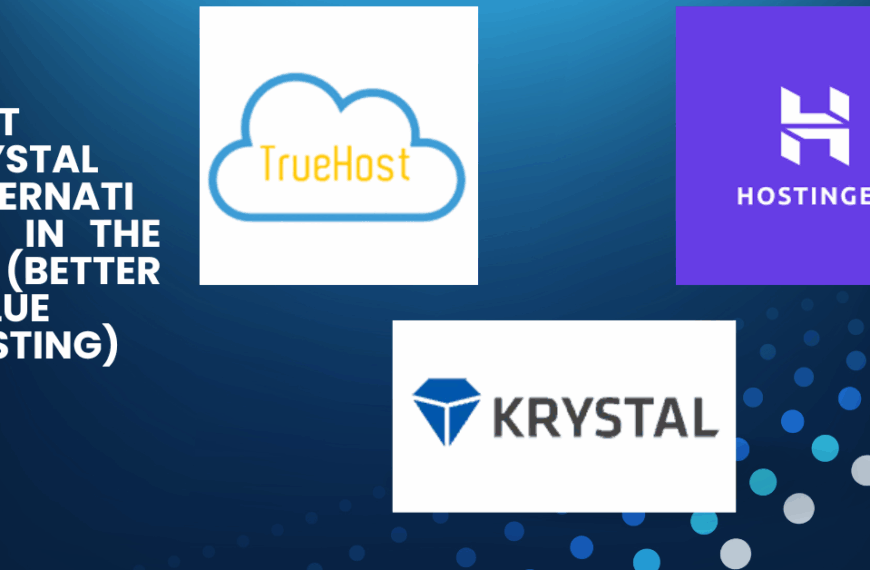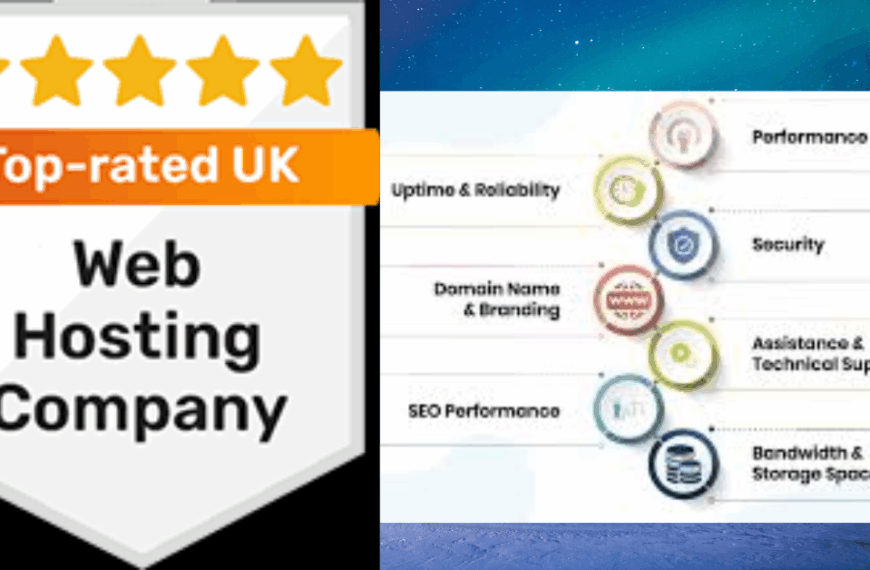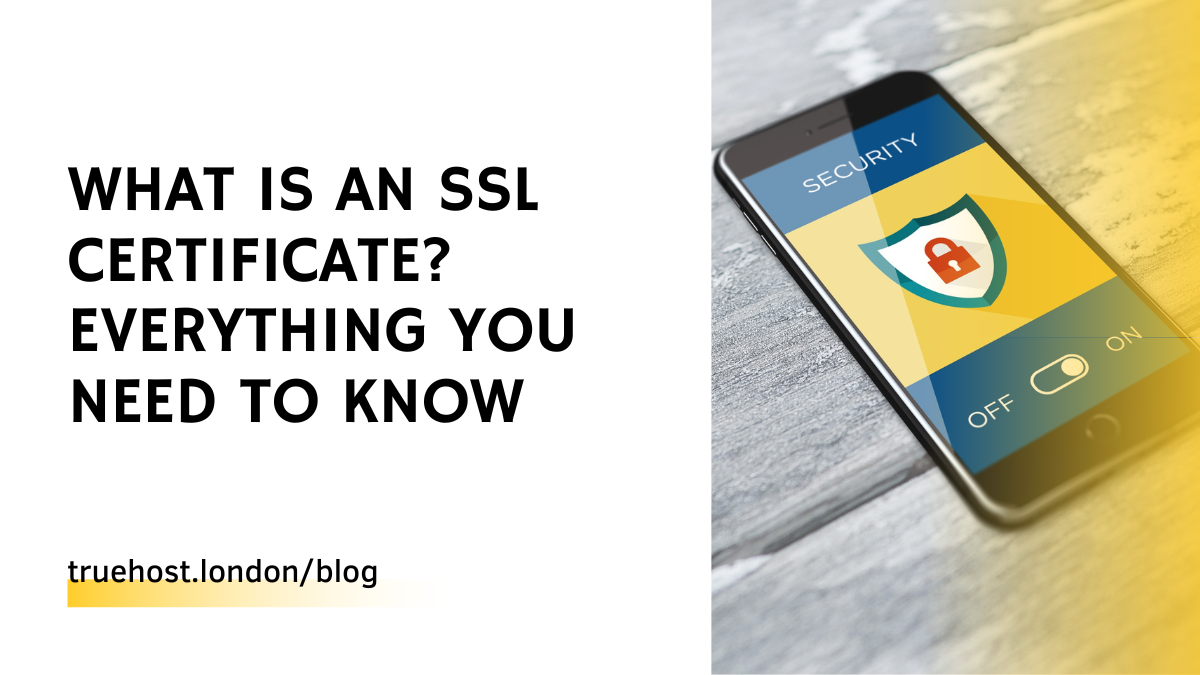Last updated on November 23rd, 2025 at 08:05 pm

SSL certificate validity periods face a dramatic transformation as the CA/Browser Forum votes to slash certificate lifespans from 398 days to just 47 days by March 2029.
This SSL certificate validity change will impact every UK business that relies on HTTPS encryption for their websites and applications.
The shortened SSL certificate validity period represents the most significant change to web security infrastructure in over a decade.
UK organizations now face the challenge of completely overhauling their certificate management processes to avoid costly outages and security vulnerabilities.
Ready to future-proof your SSL certificate management? True Host offers automated SSL solutions designed for UK businesses at affroadable prices.
Why SSL Certificate Validity Changes Matter for UK Businesses
The CA/Browser Forum’s unanimous decision stems from growing security concerns about long-lived certificates.
When cybercriminals compromise a certificate, they can exploit it for the entire validity period. Shorter lifespans dramatically reduce this exposure window.
Key Security Benefits:
- Reduced exposure window for compromised certificates
- More frequent security reviews and updates
- Enhanced incident response capabilities
- Improved overall security posture
UK Sectors Most Affected:
- E-commerce and retail websites
- Financial services and banking
- Healthcare and NHS systems
- Government and public services
- SaaS and cloud applications
Timeline of SSL Certificate Validity Changes
The implementation follows a carefully planned timeline that gives UK businesses time to prepare:
| Phase | Date | SSL Certificate Validity | Impact Level |
|---|---|---|---|
| Current | Now – March 2027 | 398 days | Minimal |
| Phase 1 | March 15, 2027 | 100 days | Moderate |
| Phase 2 | March 15, 2029 | 47 days | Significant |
The domain validation reuse period also drops to just 10 days. This means your certificate authority must revalidate domain ownership more frequently, adding another layer of complexity to the renewal process.
UK businesses should start planning now to avoid the rush closer to these deadlines. Early adopters will have competitive advantages through better security practices and fewer outages.
How SSL Certificate Validity Cuts Impact Your Operations
The reduced validity of the SSL Certificates will have several impacts including:
1. Increased Renewal Frequency Creates New Challenges
Your current certificate management process likely handles renewals 27 times per year. With 47-day SSL certificate validity, you’ll face approximately 8 renewals annually.
Renewal Comparison:
| Current Setup | New Requirements | Impact |
|---|---|---|
| 398-day validity | 47-day validity | 8x more renewals |
| ~27 renewals/year | ~8 renewals/year | Automation mandatory |
| Monthly monitoring | Daily monitoring | Infrastructure overhaul |
| Manual processes | Automated systems | Operational transformation |
Critical Challenges You’ll Face:
- Exponential increase in administrative overhead
- Higher risk of missed renewals and outages
- Need for 24/7 monitoring systems
- Integration complexity across multiple systems
2. Domain Validation Challenges Multiply
The 10-day domain validation reuse period creates additional pressure points in your renewal workflow. Certificate authorities must verify domain ownership more frequently, potentially causing delays.
Domain Validation Impact:
| Validation Aspect | Current | New Requirement |
|---|---|---|
| Reuse period | 90+ days | 10 days maximum |
| Validation frequency | Quarterly | Every 10 days |
| Manual oversight | Manageable | Nearly impossible |
| Backup procedures | Optional | Critical necessity |
3. Infrastructure Requirements Expand Dramatically
New Monitoring Requirements:
- Certificate expiration checks: Daily instead of weekly
- Alert escalation: Multiple channels and backup notifications
- Health monitoring: Real-time status across all environments
- Integration testing: Automated validation of certificate functionality
- Reporting systems: Comprehensive audit trails and compliance documentation
Preparing Your UK Business for SSL Certificate Validity Changes
What actions do you need to undertake to ensure adequate preparation for the coming validity changes?
A. Audit Your Current Certificate Inventory
Start by identifying every SSL certificate in your organization. Many UK businesses discover forgotten certificates during their first comprehensive audit.
Certificate Audit Checklist:
- Production website certificates
- Development and staging environment certificates
- Internal application certificates
- API and microservice certificates
- Load balancer and CDN certificates
- Third-party integration certificates
- Email and communication system certificates
- VPN and remote access certificates
Documentation Requirements:
- Certificate locations and responsible teams
- Expiration dates and renewal schedules
- Automation feasibility assessment
- Dependencies and integration points
B. Implement Automated Certificate Management
ACME Protocol Solutions:
- Let’s Encrypt: Free automated certificates for basic needs
- Sectigo: Enterprise ACME with advanced features. We offer several packages for this at True Host Store.
- DigiCert: Premium ACME with warranty coverage
- SSL.com: Cost-effective ACME alternative
Enterprise Management Platforms:
| Platform | Best For | Key Features | UK Support |
|---|---|---|---|
| HashiCorp Vault | Large enterprises | Fine-grained access controls | 24/7 UK support |
| Venafi | Complex environments | Comprehensive lifecycle management | UK-based team |
| Cert-Manager | Kubernetes users | Native container integration | Community support |
| AWS ACM | Cloud-first orgs | Seamless AWS integration | UK regions available |
C. Develop Monitoring and Alerting Systems
Monitoring Strategy Components:
- Certificate discovery and inventory
- Expiration date tracking
- Renewal status monitoring
- Validation and deployment verification
- Performance impact assessment
Alert Configuration Requirements:
- Multiple notification channels (email, SMS, Slack)
- Escalation procedures for different severity levels
- Integration with existing incident management systems
- Geographic distribution for UK business hours coverage
Technology Solutions for SSL Certificate Validity Management
Stay ahead of the 47-day SSL changes with smart certificate management tools by:
I. Certificate Management Platforms
HashiCorp Vault provides enterprise-grade certificate management with fine-grained access controls and audit trails. The platform integrates with existing infrastructure and supports multiple certificate authorities.
Venafi offers comprehensive certificate lifecycle management specifically designed for enterprise environments. Their platform handles discovery, provisioning, and renewal across hybrid cloud infrastructures.
Open-source alternatives like cert-manager for Kubernetes environments provide cost-effective solutions for containerized applications.
II. Integration Strategies
Kubernetes cert-manager automates certificate provisioning and renewal for containerized applications. This tool integrates seamlessly with ingress controllers and service meshes.
Load balancer automation handles certificate updates without service interruption. Modern load balancers support API-driven certificate management and automatic rollout procedures.
Infrastructure as Code (IaC) integration embeds certificate management into your deployment pipelines, preventing certificate-related issues during application updates.
Risk Mitigation for UK Organizations

Preventing Certificate-Related Outages
Redundancy Strategy:
- Primary and backup certificate authorities
- Multiple certificate management platforms
- Geographically distributed validation points
- Cross-trained personnel across teams
Automated Recovery Procedures:
| Scenario | Detection Time | Recovery Method | Expected Downtime |
|---|---|---|---|
| Renewal failure | 5 minutes | Automatic retry with backup CA | < 1 minute |
| Certificate corruption | 2 minutes | Rollback to previous version | < 30 seconds |
| CA service outage | 1 minute | Switch to backup provider | < 2 minutes |
| Validation failure | 3 minutes | Alternative validation method | < 5 minutes |
Business Continuity Planning
Emergency Response Checklist:
- 24/7 incident response team contacts
- Emergency certificate procurement procedures
- Backup certificate authority relationships
- Communication templates for stakeholders
- Customer notification procedures
- Regulatory reporting requirements
Disaster Recovery Components:
- Off-site certificate backups
- Alternative validation methods
- Emergency procurement procedures
- Stakeholder communication plans
- Recovery time objectives (RTO) definitions
Cost Considerations for SSL Certificate Validity Changes
Investment Categories and Expected Costs:
| Investment Area | Small Business (£) | Medium Business (£) | Enterprise (£) |
|---|---|---|---|
| Certificate management platform | 500-2,000/year | 5,000-15,000/year | 50,000-200,000/year |
| Monitoring and alerting tools | 200-1,000/year | 2,000-8,000/year | 15,000-50,000/year |
| Staff training and certification | 1,000-3,000 | 5,000-15,000 | 25,000-100,000 |
| Integration and development | 2,000-10,000 | 15,000-50,000 | 100,000-500,000 |
| Total first-year investment | 3,700-16,000 | 27,000-88,000 | 190,000-850,000 |
Cost vs. Risk Analysis:
- Certificate outage cost: £1,000-50,000 per hour for UK e-commerce
- Automation ROI: Typically achieved within 6-12 months
- Staff productivity gains: 20-40% time savings on certificate management
- Compliance cost avoidance: £10,000-100,000+ in potential fines
Compliance and Regulatory Impact
UK Regulatory Requirements:
| Regulation | SSL Certificate Requirements | Compliance Impact |
|---|---|---|
| PCI DSS | Strong cryptography, regular updates | More frequent compliance audits |
| GDPR | Data protection in transit | Enhanced documentation requirements |
| UK GDPR | Post-Brexit data protection | Additional UK-specific compliance |
| Financial Conduct Authority | Strong customer authentication | Stricter certificate management |
| NHS Digital Standards | Patient data protection | Healthcare-specific requirements |
Compliance Checklist:
- Updated certificate management policies
- Enhanced audit trail documentation
- Staff training on new procedures
- Regular compliance assessments
- Vendor risk management updates
- Incident response plan revisions
Getting Started with SSL Certificate Validity Preparation
Phase 1: Assessment (Months 1-2)
- Complete certificate inventory audit
- Evaluate current automation capabilities
- Identify high-risk certificates and systems
- Calculate total cost of ownership
- Select preferred automation platforms
Phase 2: Implementation (Months 3-8)
- Deploy certificate management platform
- Configure monitoring and alerting systems
- Implement automation workflows
- Train staff on new procedures
- Conduct pilot testing on non-critical systems
Phase 3: Optimization (Months 9-12)
- Migrate critical systems to automated management
- Refine monitoring and alerting rules
- Optimize renewal workflows
- Prepare for 100-day validity period (March 2027)
- Plan for final 47-day transition
Quick Start Checklist for UK Businesses:
- Week 1: Audit existing certificates and document current processes
- Week 2: Research and evaluate automation platforms
- Week 3: Calculate ROI and present business case to leadership
- Week 4: Begin vendor selection and procurement process
- Month 2: Start platform deployment and staff training
Future-Proofing Your Certificate Strategy
The 47-day SSL certificate validity period may not be the final reduction. Industry trends suggest even shorter lifespans and enhanced automation requirements in the future.
Post-quantum cryptography will eventually require certificate infrastructure updates.
Planning for these changes now provides better long-term ROI on your automation investments.
Zero-trust architecture integration demands more sophisticated certificate management capabilities that align well with the automation required for shorter certificate lifespans.
Taking Action on SSL Certificate Validity Changes
UK businesses cannot afford to wait until the March 2027 deadline to begin their certificate management transformation.
The complexity of modern IT environments requires extensive planning and testing time.
Start with a comprehensive audit of your current certificate infrastructure and develop a phased implementation plan. Focus on automation, monitoring, and risk mitigation to maintain business continuity throughout the transition.
The organizations that adapt quickly to SSL certificate validity changes will gain competitive advantages through improved security practices and more reliable operations.
Don’t let your competitors get ahead – begin your preparation today with expert guidance from True Host UK.
The future of web security demands proactive certificate management. Your customers and stakeholders expect reliable, secure services regardless of underlying infrastructure changes. By preparing now for 47-day SSL certificate validity periods, you position your UK business for success in an increasingly security-conscious digital marketplace.
 Domain Search
Domain Search Whois Lookup
Whois Lookup Domain Transfer
Domain Transfer All Domains
All Domains Web Hosting
Web Hosting Email Hosting
Email Hosting Reseller Hosting
Reseller Hosting Windows Hosting
Windows Hosting cPanel Hosting
cPanel Hosting VPS Hosting
VPS Hosting Managed VPS Hosting
Managed VPS Hosting Dedicated Server
Dedicated Server SSL Certificates
SSL Certificates All SSL
All SSL






